Thought Leadership
Sign up to join the ESCA public mailing list here. If you would like to unsubscribe from the email list, please email eea@epri.com.
Major Publications and Research

Energy Wallet: U.S. and State-Level Household Energy Expenditures, Past, Present, and Future
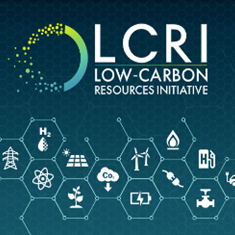
Net-Zero 2050: Sensitivity Analysis and Updated Scenarios

Representation of Geothermal Resources and Technologies in EPRI's US-REGEN Model: Guidelines for Enhancing Geothermal Integration in Capacity Expansion Models

Value of Voluntary Carbon Markets in Energy Systems Decarbonization

Powering Data Centers: U.S. Energy System and Emissions Impacts of Growing Loads

Critical Minerals for the Clean Energy Transition: Supply, Demand, and Impacts

Stochastic Modeling Practices for Integrated Resource Planning

Evaluating Local Climate Change Impacts

Drivers and implications of alternative routes to fuels decarbonization in net-zero energy systems - Nature

Climate Informed Planning and Adaptation for Power Sector Resilience
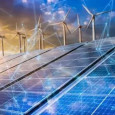
Integrated Strategic System Planning Initiative: Modeling Framework, Demonstration Study Results, and Key Insights
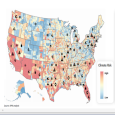
Climate 101: Physical Climate Data
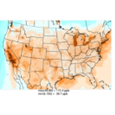
Economy-wide evaluation of CO2 and air quality impacts of electrification in the United States – Nature Communications
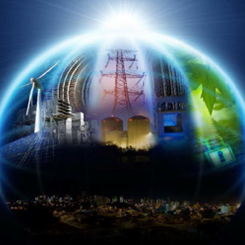
TAGWeb – Technology Assessment Guide

GHG Accounting Compendium

24/7 Carbon-free Energy: Matching Carbon-free Energy Procurement to Hourly Electric Load
Back Pocket Insights
- A Template for Understanding Third-Party Physical Climate Risk Assessment Frameworks for UtilityDecember 2025
- Why are site-specific estimates often higher than generic cost estimates?December 2025
- SMARTargets: Integrating economy-wide greenhouse gas emissions transitions and risk into utility planningOctober 2025
- Emissions Impacts of Rooftop SolarSeptember 2025
- Delivering the Energy Transition: Project Timelines & ConsiderationsSeptember 2025
- Cost Projection Factors for Resource Planning InsightSeptember 2025
- Incorporating Realistic Constraints in Planning ModelsJuly 2025
- Advancing Long Duration Energy Storage (LDES) Modeling for Long-Term Resource PlanningJuly 2025
- Sectoral CO2 Reductions for Economy-Wide DecarbonizationJanuary 2025
- Role of Carbon Management Technologies in U.S. Economy-Wide Decarbonization PathwaysJanuary 2025
- Impacts of EPA's Power Plant Greenhouse Gas StandardsJanuary 2025
- Value of Voluntary Carbon Markets in Energy Systems DecarbonizationDecember 2024
- Greenhouse Gas Emissions Accounting for Common Carrier Energy InfrastructureNovember 2024
- 24/7 Carbon-Free EnergyNovember 2024
- Uses and Limits of Decarbonization Scenarios to Inform Net-Zero TransitionsOctober 2024
- Impact of Uncertain Hydrogen Technology Futures on Long-Term Electric Company Investment PortfoliosAugust 2024
- Assessing Key Market Trends Impacting Technology Costs in Energy System Resource PlanningAugust 2024
- Opportunity on the Margin: Electricity Prices Under Deep DecarbonizationAugust 2024
- Regional Decarbonization SummaryJune 2024
- Assessing Temporal and Spatial Modeling Choices for Energy Storage in Long-Term Resource PlanningMay 2024
- Zero CO2 Electric Sector Policy & System ReliabilityMay 2024
- Assessing the Impacts of Dark Doldrums Events on Electric System Resource PortfoliosMay 2024
- Advanced Nuclear Reactors in Energy System Resource PlanningMarch 2024
- Carbon Capture and Storage in Energy System Resource PlanningMarch 2024
- Storage Technologies in Energy System Resource PlanningMarch 2024
- Hydrogen in Energy System Resource PlanningMarch 2024
- Updated Emissions Imply Accelerated Efforts to Reach 2030 Climate TargetJanuary 2024
- Analysis of EPA's Proposed Standards for PowEer PlantsJanuary 2024
- Understanding Distributional Impacts of Decarbonization: Evolution of Consumer Spending on EnergyDecember 2023
- Power Sector Impacts of the Inflation Reduction ActNovember 2023
- Technical Considerations and Requirements for Greenhouse Gas Emissions OffsetsNovember 2023
- Understanding the Role of Offshore Wind in U.S. Decarbonization (中文)October 2023
- Understanding the Role of Offshore Wind in U.S. Decarbonization (English)October 2023
- Scope 3 Greenhouse Gas Emissions Accounting for Electric Power CompaniesOctober 2023
- Evidence of the Relationship Between Household Income and Transport EmissionsAugust 2023
- Emissions and Energy Impacts of the Inflation Reduction ActAugust 2023
- Inflation Reduction Act Two PagerJune 2023
- Approaches to Assess the Emissions Impacts of ElectrificationNovember 2022
- Electrification and Air QualityNovember 2022
- Extreme Heat Events and Impact to the Electric SystemSeptember 2022
- Using Renewable Energy to Reduce Corporate Scope 2 Greenhouse Gas EmissionsSeptember 2022
- Is There a Role for Natural Gas in Net-Zero Emissions Power Systems?August 2022
- Scope 2 GHG Emissions Accounting for Electric Power CompaniesJuly 2022
- Impacts of Wind and Solar Costs on Electric Sector DecarbonizationMay 2022
- Actions for Reducing U.S. Emissions at Least 50% by 2030May 2022
- Overview of GHG Emissions AccountingMay 2022
- The Role of the Electric Sector in Net Zero Emissions SystemsOctober 2021
- Importance of Temporal Resolution in Modeling Deep Decarbonization July 2021
- Impacts of Carbon Dioxide Removal on Power Sector DecarbonizationJune 2021
- How does a carbon price impact electricity prices?January 2021
- Insights from Natural Gas Fuel Price ScenariosApril 2020
- Reaching a Zero CO2 Emission Electric Sector- Technology Opportunities and System ImpactsApril 2020
- Trade-offs in Emissions Reductions with a CO2 PolicyApril 2020
- An Insider's Guide to the Calculation and Use of LCOEsJanuary 2020
- Impacts of Recent State Renewables Policies in the U.S., December 2019December 2019
- A Primer on Wind and Solar Value DeflationAugust 2019
- Impacts of Battery Storage on the Electric Sector MixMarch 2019
- Minnesota High Renewable Standard InsightsMarch 2019
- Value of Technology in the Electric Power SectorAugust 2018
- Value and Costs of State Renewable Portfolio StandardsgitJuly 2018
Podcast Episodes

Weathering the Storm: Hydropower and Climate Resilience
Jacob Mardian - September 29, 2025Join EPRI experts Jacob Mardian and Dr. Mark Christian to explore the future of hydropower in the face of extreme weather. Drawing from a recent nationwide hydropower study under EPRI’s Climate Resilience and Adaptation Initiative (Climate READi), guests discuss how extreme weather events, like droughts and floods, are impacting hydropower operations and infrastructure. The experts highlight the importance of proactive planning, data-driven risk assessments, and collaboration across sectors to ensure long-term reliability and safety. After analyzing more than 1,500 hydropower facilities nationwide, they offer insights into regional vulnerabilities, adaptation strategies, and the role of hydropower in a clean energy future.
Listen Now
What's an Energy Wallet? Exploring EPRI's Tool for Tracking Household Energy Spending
Geoff Blanford - September 11, 2025As energy demand rises and electrification accelerates, understanding household energy affordability is more important than ever. In this episode of the EPRI Current, Geoff Blanford from EPRI and Michael Kohlhaas from Con Edison join host Samantha Gilman to discuss the Energy Wallet – EPRI’s new holistic metric for capturing total household energy usage and spending, including gas, electricity, and transportation. The experts share findings from EPRI’s recent report, which projects a 36% decline in the average U.S. household energy spending by 2050, and highlights how utilities like Con Edison are using similar models to guide long-term planning and support communities. Tune in to learn how data-driven insights are shaping the future of energy affordability and resilience.
Listen Now
Powering Through: How Power Companies Can Weather the 2025 Hurricane Season
Andrea Staid and Erik Smith - July 9, 2025As of June 1, the North Atlantic Basin officially entered the 2025 hurricane season. NOAA's 2025 forecasts project a 60% chance of an above-normal season, with 13–19 named storms, 6–10 hurricanes, and up to 5 major hurricanes. EPRI experts Andrea Staid and Erik Smith explore how power companies can build resilience and maintain reliability amid intensifying storms. They tackle key questions: How accurate are hurricane forecasts? How should power companies plan around the unknown? How do regional differences shape preparedness strategies? The conversation highlights EPRI's Climate READi initiative, which provides science-based guidance to help utilities assess hazard risks, support operational decisions, and plan for climate adaptation.
Listen Now
FACTOR THIS Podcast: Preparing the grid for the climate of tomorrow
Laura Fischer and Andrea Staid - June 25, 2025On this episode of the Factor This podcast, host Paul Gerke chats with EPRI's Laura Fischer and Andrea Staid about the newly released Climate READi power framework, a robust collaboration that included insights from more than 40 electric companies, 100 academic, consulting, and finance institutions, as well as national labs, regulators, and government agencies.
Listen Now
USEA Power Sector Podcast Episode 106: EPRI Energy Systems & Climate Analysis Program Manager Nidhi Santen
Nidhi Santen - January 22, 2025EPRI Energy Systems and Climate Analysis Program Manager Nidhi Santen answered questions by journalist Herman K. Trabish about how variable and customer-owned energy resources, rising demand, and new policy are driving innovations in utilities' longstanding use of integrated resource planning, or IRP, to optimize affordable reliable electricity delivery.
Listen Now
EV Efficiency Gains- What's Down the Road?
Geoff Blanford - April 25, 2024EPRI and Natural Resources Defense Council (NRDC) recently released a study that found that EV efficiency improvements have the potential to significantly reduce future electric infrastructure buildout, energy usage, and consumer costs over the next three decades. According to the study, continued advances in EV efficiencies could reduce electricity consumption per mile in half and provide consumer energy cost savings of more than $200 billion annually if accomplished without raising vehicle costs.
Join EPRI Current host, Samantha Gilman, as she discusses these findings and more with report authors Luke Tonachel, senior strategist for transportation at NRDC, and EPRI's Geoffrey Blanford, principal technical executive in the energy systems and climate analysis group.
Listen Now
Wait, how much will the Inflation Reduction Act's climate provisions cost?
John Bistline - March 13, 2024John Bistline spoke with NPR Marketplace's Kai Ryssdal about the ongoing debate on its effect on clean energy adoption and how the market environment has changed since the IRA was passed.
Listen Now
How to Be Carbon Free Hour by Hour
Arin Kaye - November 2, 2023The shift from procuring 100 percent renewable energy on an annual basis to 24/7 Carbon Free Energy (CFE) on an hourly basis marks a potentially important evolution of corporate efforts to promote clean energy.
Join EPRI's Arin Kaye, and Iron Mountain Data Centers' Chris Pennington as they provide an overview of this emerging topic, and how companies like Iron Mountain are shifting to CFE 24/7. Plus, find out how EPRI is helping support these efforts through the emergence of a new CFE 24/7 Interest Group.
Listen Now
Supply Chain Opportunities for Clean Energy Technologies
Robin Bedilion - August 23, 2023Strong supply chains are vital to all businesses. But a series of perfect storm events ... COVID, geopolitical issues, environmental and human rights concerns, among others ... have created ongoing supply chain challenges resulting in bottlenecks, project delays, and cost increases for clean energy technologies such as wind, solar, and battery storage. This episode explores supply chain challenges and opportunities affecting the clean energy technologies of today and tomorrow and the potential impacts on achieving global decarbonization goals.
Robin Bedilion is a Principal Project Manager in the Energy Systems and Climate Analysis group at EPRI. She conducts techno-economic analyses and cost and performance research evaluating current and emerging power sector technologies to support utility resource planning and EPRI's energy-economy modeling. She earned a bachelor's degree in mechanical engineering from Santa Clara University and a master's degree in mechanical engineering with a focus on energy systems from Stanford University.
Listen Now
Extreme Heat: How the Changing Climate Raises the Risk
Dan Kirk-Davidoff, Erik Smith - March 10, 2023Join two of EPRI's climate experts, Dan Kirk-Davidoff and Erik Smith, as they discuss extreme heat, the relationship between climate and weather, and the ongoing El Nino. With many experiencing record heat this summer, our guests offer insight into the current overall U.S. heat profile and how we can use this data to prepare the energy system for future extreme weather.
Listen Now
Becoming Climate READi
Andrea Staid - August 9, 2023In this episode of the EPRI Current, our host chats with EPRI's Morgan Scott and Andrea Staid on the most recent white paper published by EPRI's Climate READi Initiative. Results show that planning for future climate conditions and proactively implementing resilience strategies may significantly reduce the costs incurred by energy companies for response, repair, and recovery. How much? Listen to find out.
Morgan Scott is the director for Climate READi, Sustainability & Ecosystem Stewardship at EPRI. Morgan leads the Institute's effort to design and develop a comprehensive industry approach to physical climate risk assessment and mitigation. Andrea Staid is a senior technical leader in EPRI's Energy Systems and Climate Analysis group. Andrea is a co-lead for Workstream 3 in the Climate READi initiative and also supports other work in the areas of climate resilience and climate impact modeling.
Listen Now